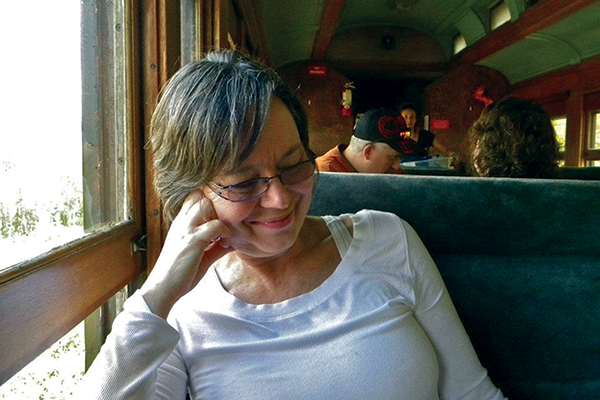Breast Cancer Changes You
4 Tips for Navigating the Transformation, from Someone Who’s Been There
by Donna Sidwell DeGracia
When I was diagnosed with breast cancer, I thought I knew what I was getting into. I had been a healthcare provider for 30 years, performed tens of thousands of women’s health exams, and had even delivered my share of breast cancer diagnoses. But the experience on the other side was full of surprises.
Even now, after fourteen years and a second round with breast cancer, I am still learning. A breast cancer diagnosis changes you. It transforms your life in unexpected ways. Here are my four best tips, as a breast cancer survivor and healthcare provider, for navigating the transformation.
1. Be patient with yourself.
It takes time to adjust to the life changes a breast cancer diagnosis brings. Don’t be too hard on yourself as you learn to adapt to your new normal.
Shortly after my first diagnosis, I took part in the Susan G. Komen 3‑Day walk for breast cancer. Even among that crowd, I felt out of place. I had not yet accepted my membership into the group. It wasn’t until friends began reaching out to me about their own newly diagnosed breast cancer that I began to understand we all feel that way in the beginning.
Don’t be too hard on yourself as you learn to adapt to your new normal.
Body image was also an issue for me. I was never really bothered about how my body looked until after my mastectomy when my stomach was suddenly bigger than my chest. It took me two years to swallow my pride and decide on reconstruction, another adjustment.
Whatever your challenges, you are not alone. Give yourself time to adjust, to normalize the new you, to celebrate, and to cry. Consider the compassion you would extend to a close friend who is newly diagnosed with breast cancer and give that same compassion to yourself. Forgive yourself when you feel weak, frustrated, or depressed. Seek out your support system to help you through the tough times, but don’t expect a quick fix. And enjoy the good times.
2. Focus on your strengths.
What do you like most about yourself? Make a list of your best qualities and reflect on it often. Your strengths will see you through the rough times and can help you turn adversity into personal growth.
During my breast reconstruction, my humor is what got me through. When I could laugh at myself and the changes occurring in my body, I was better able to deal with the discomfort and the disappointments.
Another one of my personal strengths is my ability to explore perspectives. When friends began confiding in me after their breast cancer diagnoses, I realized that none of us knew what to expect with this disease. This led to a series of interviews with other breast cancer survivors and eventually a book. Diving into the experiences of other survivors and writing about it helped me to process my own journey and recognize my own evolution as a breast cancer survivor.
Whatever your strengths, harness them now. Employ them generously. Rely on them daily.
3. Create a personalized support toolkit.
What lifts you up when you are down? Who makes up your support network?
Don’t be afraid to draw on your support system. Ask for help when you need it, and accept it when it’s offered. Your friends and family love you. Supporting you through your cancer journey will benefit them as much as it benefits you.
Find your people. And give yourself permission to lean on them. During my cancer journey, I received books and flowers that lifted my spirits, but the thing that helped me the most was the emotional support I got from friends and family.
Other tools that can help you cope with breast cancer are hobbies, exercise, meditation, and taking part in activities you enjoy. I find reading, drawing, and writing to be therapeutic. Find something that works for you.
4. Pay it forward.
After cancer, some people change their whole life and become mission driven. Others simply become more aware of the pain of those around them and reach out to offer support where needed. Cancer changes our perspectives. It teaches us to discriminate between what is important in life and what is petty. It grows our hearts.
Use your new perspective to make a difference, even in a small way. Your actions can have a ripple effect on your family, your community, and your world.
Donna DeGracia is a physician assistant and an educator whose life and work have taken her from distant corners of the globe to intimate conversations about aspects of life that cancer survivors may not have shared with anyone else. This article is based on her own experiences as a two-time breast cancer survivor and a series of interviews she did for her book Reconstructing Hope: Intrusions, Oxymorons, and Transformations in the Breast Cancer Marathon. You can learn more about Donna at DonnaSidwellDegracia.com.
This article was published in Coping® with Cancer magazine, September/October 2021.
Everyone has a unique story to share. Do you want to share your survivor story? We consider a cancer survivor to be anyone living with a history of cancer – from diagnosis through the remainder of life. Here are our submission guidelines.


